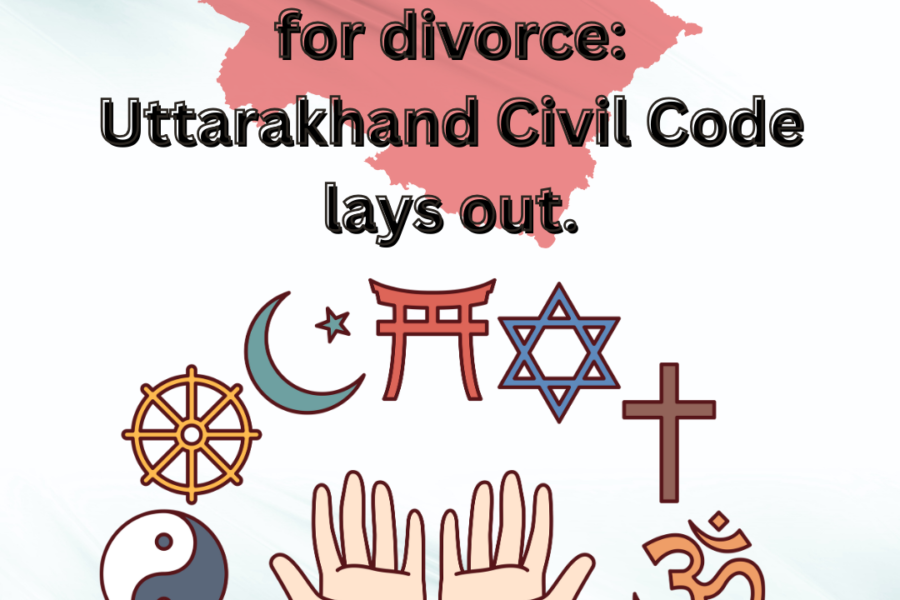The Uttarakhand Uniform Civil Code Bill 2024 has garnered significant attention due to its comprehensive approach towards codifying personal laws. However, a critical examination of its provisions concerning live-in relationships reveals potential pitfalls and areas of concern. This article aims to analyze these provisions in depth, highlighting their implications for individuals in live-in relationships and their broader legal and societal ramifications.
Introduction:
The concept of live-in relationships, once considered unconventional, has gained widespread acceptance in contemporary society. However, legal recognition and protection for individuals in such relationships vary across jurisdictions. In India, the legal framework surrounding live-in relationships is largely ambiguous and lacks uniformity. The Uttarakhand Uniform Civil Code Bill 2024 seeks to address this by providing a consolidated set of laws governing personal matters, including live-in relationships. While the bill represents a step towards legal clarity and uniformity, a critical examination of its provisions about live-in relationships is necessary to evaluate its effectiveness and fairness.
Legal Status of Live-In Relationships in India:
Live-in relationships in India have historically existed in a legal grey area, lacking clear statutory recognition. Courts have progressively recognized the rights of individuals in such relationships, particularly concerning maintenance and property rights. However, the absence of comprehensive legislation has resulted in inconsistency and uncertainty in legal proceedings involving live-in partners.
Provisions of the Uttarakhand Uniform Civil Code Bill 2024 on Live-In Relationships:
The Uttarakhand Uniform Civil Code Bill 2024 contains provisions aimed at regulating live-in relationships within its purview of personal laws. These provisions address various aspects of such relationships, including rights and responsibilities of partners, property rights, maintenance, and dissolution.
- Definition and Recognition: The bill defines live-in relationships and recognizes them as valid partnerships akin to marriage for rights and obligations under the law. This provision represents a positive step towards acknowledging the social reality of live-in relationships and granting legal recognition to the rights of partners.
- Property Rights: One of the significant provisions of the bill pertains to the property rights of partners in live-in relationships. It outlines mechanisms for the division of shared assets acquired during the relationship, akin to the principles of matrimonial property division in marriage. However, the bill lacks clarity regarding the treatment of individual assets brought into the relationship by each partner, which may lead to disputes and legal challenges.
- Maintenance: The bill mandates provisions for the maintenance of partners in live-in relationships, akin to the obligations of spouses in marriage. It establishes criteria for determining the quantum of maintenance based on factors such as income, standard of living, and financial needs. While this provision aims to provide financial security to vulnerable partners, it raises questions regarding enforceability and practicality, particularly in cases of disputes or breakups.
- Dissolution and Disputes: The bill outlines procedures for the dissolution of live-in relationships and the resolution of disputes arising therein. It provides for mechanisms such as mediation and arbitration to facilitate amicable settlements between partners. However, the absence of clear guidelines and precedents in this regard may pose challenges in implementation and enforcement.
Critical Analysis:
While the provisions of the Uttarakhand Uniform Civil Code Bill 2024 pertaining to live-in relationships signify a step towards legal recognition and protection of rights, they also raise several concerns and areas of critique.
- Ambiguity and Interpretation: The bill’s language and provisions regarding live-in relationships are subject to interpretation, leading to ambiguity and potential loopholes. Without clear guidelines and precedents, courts may face challenges in interpreting and applying these provisions consistently, leading to uncertainty in legal outcomes.
- Inequality and Discrimination: The bill’s provisions on live-in relationships may inadvertently perpetuate inequality and discrimination, particularly concerning property rights and maintenance. The lack of clarity regarding the treatment of individual assets and financial contributions may disadvantage economically weaker partners, disproportionately impacting women and marginalized communities.
- Enforceability and Implementation: While the bill outlines the rights and obligations of partners in live-in relationships, its enforceability and implementation remain questionable. Without adequate mechanisms for enforcement and redressal of grievances, individuals in such relationships may struggle to assert their rights effectively, particularly in cases of disputes or non-compliance by partners.
- Cultural and Social Dynamics: The legal framework surrounding live-in relationships must also consider cultural and social dynamics that influence perceptions and practices. While the bill seeks to codify uniform laws, it must remain sensitive to diverse cultural norms and practices prevalent in society, ensuring that legal provisions are reflective of societal realities and aspirations.
Conclusion:
The provisions of the Uttarakhand Uniform Civil Code Bill 2024 concerning live-in relationships represent a significant step towards legal recognition and protection of rights for individuals in such partnerships. However, a critical examination reveals potential pitfalls and areas of concern, including ambiguity, inequality, and enforceability. Addressing these challenges requires a nuanced approach that balances legal clarity with sensitivity to cultural and social dynamics. As India moves towards a more uniform legal framework governing personal matters, it is imperative to ensure that the rights and interests of all individuals, including those in live-in relationships, are safeguarded and upheld.
Adv. Khanak Sharma


Their 24/7 support line is super helpful.
cost of cheap lisinopril without prescription
Their global pharmacists’ network is commendable.
A true champion for patients around the world.
gabapentin magyarul
Their global pharmacists’ network is commendable.
Always professional, whether dealing domestically or internationally.
how to buy cheap clomid pill
Top 100 Searched Drugs.